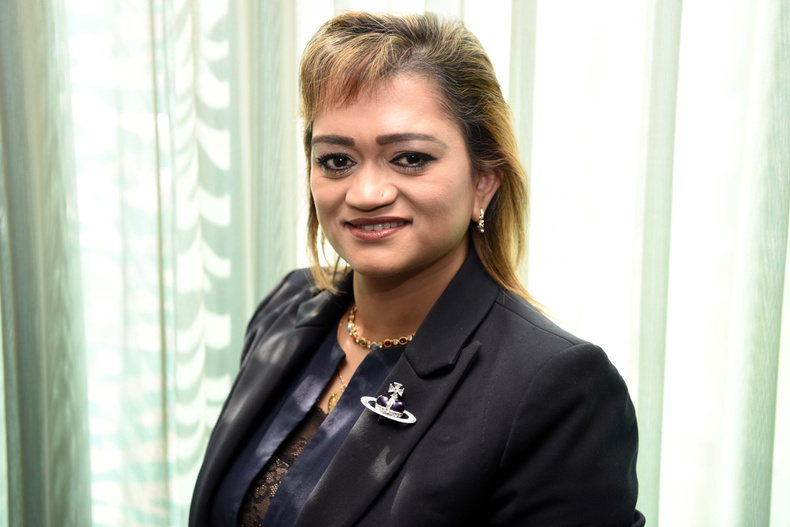Large venues will miss out on lack of in-person cultural festivals

Large venues and communities will miss out on a lack of in-person events, typically hosted to celebrate cultural and religious festivals due to be hosted in April.
That 's the view of Fajli Bibi (pictured), executive committee member for the Asian Business Chamber of Commerce (ABCC), who was commenting on how usually the cultural spring festival of Baishaki usually attracts large amounts of economic growth - as well as other cultural benefits.
Baisakhi, known as Bangla New Year, is celebrated by Bengalis in Bangladesh and many parts of India, West Bengal, Tripura and Assam.
The Mughal Emperor Akbar first introduced the Bengali New Year and official Bengali calendar to ease the tax collection process.
It is usually celebrated in-person, but this year 's celebration, due to take place on 14 April, will be a more low key affair.
Fajli said: “Due to Covid lockdown we 're unable to celebrate Baishaki which will have a detrimental impact on the Bangladeshi community and the businesses as people won 't be spending money on new outfits, food, sweets and savouries.
“Also businesses hold mobile stalls in the fun fairs which generate substantial income for small businesses, which they will loose out on. Large venues and community centres generating income from hosting the celebration events which they will loose out on. The entertainment industries and artists won 't be performing therefore they will be loosing an income. These events not only helps with economic growth but brings communities together. ”
Mani Hayre, founder of Mani 's Madness, shared the same view, and said that usually festivals such as Baiskahi, Vaisakhi and Ramadan are crucial times of the year for businesses to network and learn.
She said: "The festival events not only celebrate cultural diversity among individuals, but allow businesses to cross network and learn. The pandemic has had a huge impact on how face to face networking is being affected and none more so than the ABCC festival events. To mix with over 100 individuals, to network and make all those all important business connections, whilst it can still happen online, won't have the same impact as attending a shared event where you can talk business over great food."
Vaisakhi, also taking place on 14 April, is widely recognised by Sikhs as a new year celebration and commemorates the birth of Khalsa.
The Khalsa refers to both a community that considers Sikhism as its faith, as well as a special group of initiated Sikhs
Vaisakhi coincides with the spring harvest, where many farmers in India would reap the rewards of their hard work throughout the year. For the South Asian diaspora, it is a chance to reflect and remember the faith and oneness with God.
“It means I get to eat a lot of jalebi!," a popular sweet snack, Shani Dhanda, vice-president of the ABCC said.
It is also a time for celebration and community, but as Pam Sheemar, entrepreneur development manager at NatWest says, celebrations will look a little different this year: “Celebrations may look different in 2021 due to the coronavirus pandemic, which would normally include a joyful community parade, known as the Nagar Kirtan. ”
Celebrations around the Islamic festival of Ramadan, expected to take place on the 12 April or 13 April are also due to be disrupted, with many opting for smaller, perhaps virtual celebrations to mark the start of the month.
Muslims observe Ramadan by fasting from dawn until sunset, and is used as a time for spiritual reflection.
For Sajid Gulzar, executive headteacher and chief executive of the Prince Albert Community Trust, Ramadan will still be a time for a “spiritual detox ”.
He said: “The older I get, the more I look forward to the month of Ramadan. It 's almost like awaiting the return of a dear old friend. In recent years, the fasting from food and drink during daylight hours has felt almost incidental, despite the length of the day. This was even the case when Ramadan fell in June a few years ago and the fast was almost 20 hours long.
“For me, it 's a spiritual detox, a time to reconnect with my Lord and what it means to be a Muslim. ”
He added: “Ramadan is also a time for family. It is the only time of year that we will eat together as a family twice a day every day for a month. It is the only time of year that we will pray and recite the Quran together. There is often a warmth, a feeling of mutual love and togetherness that, although is there at other times of year, is concentrated and abundant during Ramadan. ”
